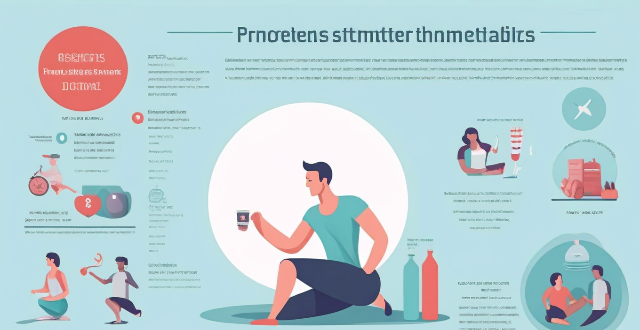The article provides several tips on how to reduce stress in daily life, including identifying the sources of stress, practicing mindfulness and meditation, exercising regularly, eating a healthy diet, getting enough sleep, and connecting with others. It emphasizes the importance of taking steps to manage stress and improve overall well-being.

How to Reduce Stress in Daily Life
Stress is an inevitable part of our lives, but it doesn't have to control us. Here are some tips on how to reduce stress in your daily life:
Identify the Sources of Stress
Firstly, it's important to identify the sources of stress in your life. This could be anything from work pressure to family issues or financial problems. Once you know what's causing your stress, you can take steps to address it.
- Work Pressure: If work is causing you stress, try to prioritize tasks and break them down into smaller, manageable chunks. Take regular breaks throughout the day and make sure you're getting enough sleep at night.
- Family Issues: If family issues are causing you stress, try to communicate openly and honestly with your loved ones. Seek out support from friends or a therapist if needed.
- Financial Problems: If finances are causing you stress, create a budget and stick to it. Look for ways to cut back on unnecessary expenses and consider seeking professional advice if needed.
Practice Mindfulness and Meditation
Mindfulness and meditation can help you become more aware of your thoughts and feelings, which can help reduce stress levels. Try setting aside a few minutes each day to practice mindfulness or meditation.
- Mindfulness: Mindfulness involves paying attention to the present moment without judgment. You can practice mindfulness by focusing on your breath, noticing physical sensations in your body, or simply observing your surroundings.
- Meditation: Meditation involves sitting quietly and focusing on your breath or a specific word or phrase (known as a mantra). There are many different types of meditation, so find one that works for you.
Exercise Regularly
Exercise is a great way to reduce stress and improve overall health. Aim for at least 30 minutes of moderate exercise per day, such as brisk walking, jogging, or cycling.
- Physical Benefits: Exercise releases endorphins, which are natural mood boosters. It also helps to lower blood pressure and reduce the risk of chronic diseases like heart disease and diabetes.
- Mental Benefits: Exercise can also improve mental health by reducing symptoms of anxiety and depression. It can also help you sleep better at night.
Eat a Healthy Diet
Eating a healthy diet is important for both physical and mental health. Make sure you're getting plenty of fruits, vegetables, whole grains, and lean proteins in your diet.
- Nutrient-Rich Foods: Nutrient-rich foods like leafy greens, berries, nuts, and seeds are packed with vitamins and minerals that can help reduce stress levels.
- Limit Processed Foods: Processed foods often contain high levels of sugar, salt, and unhealthy fats, which can contribute to stress and poor health over time. Try to limit these foods as much as possible.
Get Enough Sleep
Getting enough sleep is crucial for managing stress levels. Most adults need between 7-9 hours of sleep per night.
- Establish a Bedtime Routine: Establishing a consistent bedtime routine can help signal to your body that it's time to wind down and prepare for sleep. This might include taking a warm bath or shower, reading a book, or practicing relaxation techniques like deep breathing or progressive muscle relaxation.
- Create a Comfortable Sleep Environment: Make sure your bedroom is cool, dark, and quiet. Invest in comfortable bedding and pillows, and consider using blackout curtains or eye shades if necessary.
Connect with Others
Connecting with others is an important part of managing stress. Whether it's spending time with friends and family or joining a social group or club, social support can help reduce stress levels and improve overall well-being.
- Spend Time with Loved Ones: Spending quality time with loved ones can help reduce stress levels and improve overall well-being. Whether it's going out to dinner, taking a walk together, or just chatting over coffee, make sure you're taking time to connect with those who matter most to you.
- Join a Social Group or Club: Joining a social group or club can provide opportunities for social interaction and support outside of your immediate circle of friends and family. Look for groups that align with your interests or hobbies, such as book clubs, sports teams, or volunteer organizations.